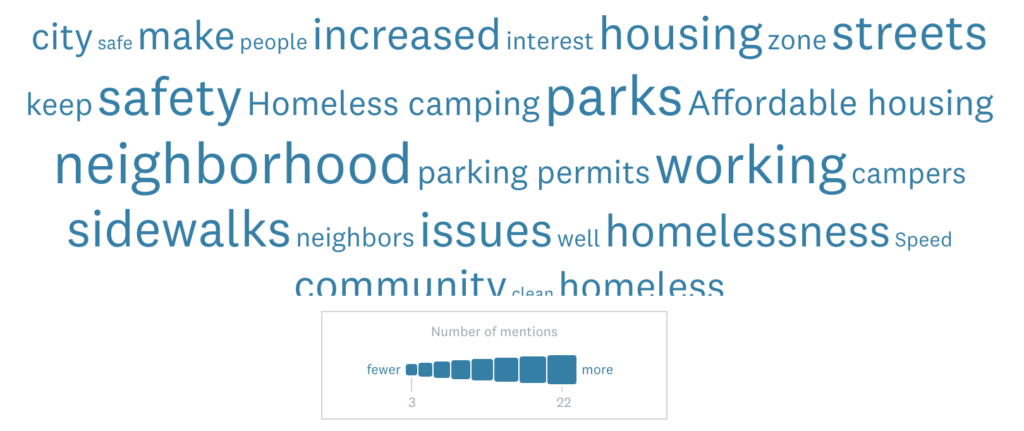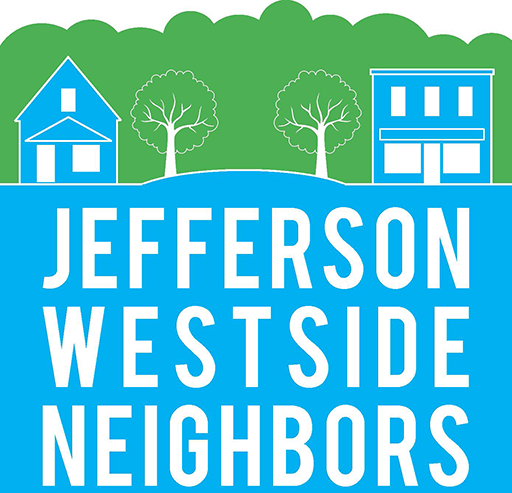2021 JWN Priorities Survey
Every year we create a survey to ask about the major concerns, likes, and issues that JWN members have about the neighborhood and what we should be focusing on for the coming year. Give us your feedback and ideas.
N=120
Who took it:
83% owner occupied
17% renter [12% house detached/duplex/triplex, 5% Apartment
18-24
0.83%1
–
25-34
15.83%19
–
35-44
17.50%21
–
45-54
5.83%7
–
55-64
18.33%22
–
65+
41.67%50
In general, what are your top public safety concerns as a JWN resident?
#1. Property crime (home/auto burglary)
#2. Property crime (petty theft/bike)
#3. Anti-social behavior (e.g., public drug use, belligerence)
In general, what are your top quality of life concerns?
#1. (tie) Litter/vandalism and Illegal Camping (vehicle, open space)
#2. Anti-social behavior (e.g., public drug use/smoking, belligerence)
#3. Cost of living/rent
What do neighbors like the most about the JWN?
#1. Central location
#2. Bike/pedestrian friendly
#3. Trees
Top ways people here about the JWN?
#1. Mailed Newsletters
#2. eNews
#3. Yard Signs
Major Public Safety Concerns (written responses that drew multiple comments)
Homeless camping impacts (trash, human waste, near public spaces, sharps).
Street safety (speed, crossing [W. 11th , Jefferson] sidewalks)
Word Cloud
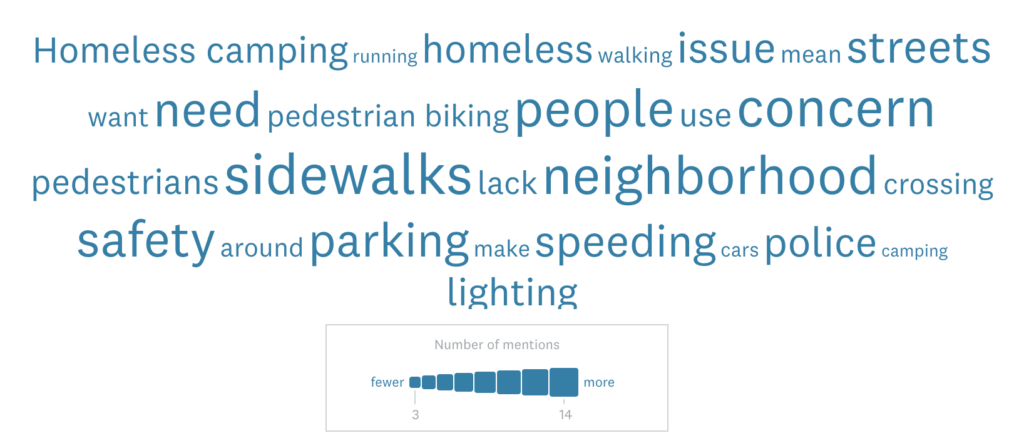
Quality of Life (written responses that drew multiple comments)
Housing: need more density; we have enough density; housing costs.
Poor pedestrian infrastructure
Crime/trash
Word Cloud
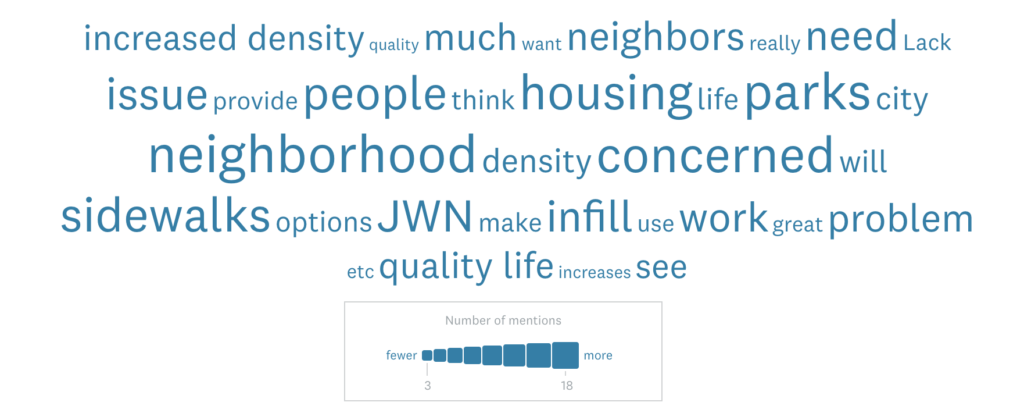
What do you like about the JWN?
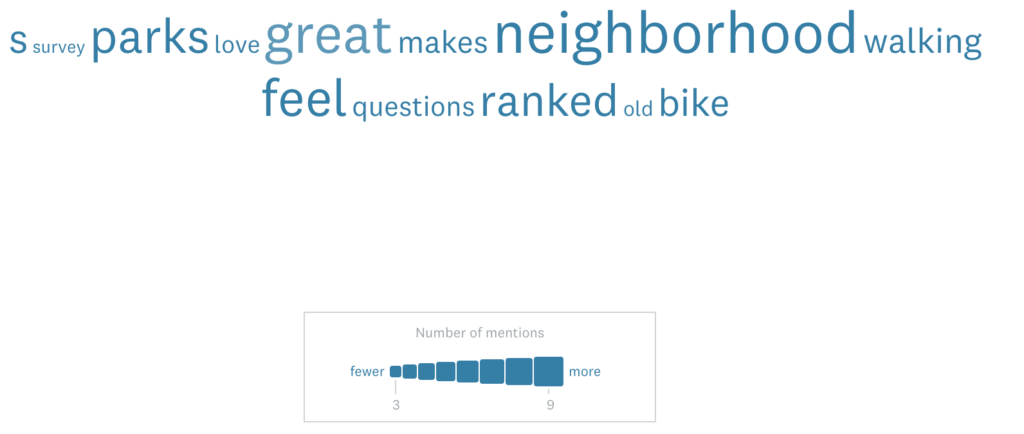
Billboards: require constant maintenance, vandalism.
Major takeaways from written comments:
Even split for/against density
Top concerns were homelessness/car camping and Street safety (Speed, bike, pedestrian/sidewalks) followed by need for parking control. There is a lot of momentum on street safety, and we suggest we look at sidewalk repairs and reverting W. 11th and W. 13th to two-way as projects for 2021/22. This fits with the RPP in progress.
Other concerns voiced by more than one person: Push city to meaningfully address homelessness (ongoing for us) and Emergency preparedness. So, a push on preparedness would be another project.
What Should we Work on This Year?
